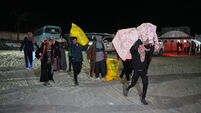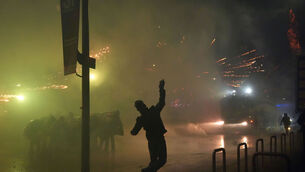Fallujah ceasefire holds but death toll tops 600
A fragile ceasefire held between Sunni fighters and US marines in the besieged city of Fallujah, where doctors said more than 600 Iraqis, including civilians, were killed in the past week.
Near Baghdad, gunmen shot down a US attack helicopter, killing two crewmen.














